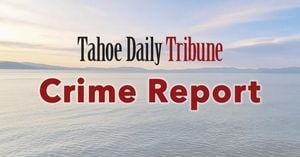On February 21, 2025, several significant updates emerged from the technology and security sectors, alongside notable news involving high-profile individuals. The cybersecurity arena saw fresh innovations aimed at enhancing security and operational efficiency amid growing threats.
Fortinet has rolled out enhancements to its FortiAnalyzer platform, which aims to accelerate threat hunting and streamline incident response. This solution provides organizations with centralized visibility and advanced threat detection, emphasizing its capability to support both on-premises and cloud environments. With this upgrade, Fortinet aims to reduce complexity within security operations centers (SOCs) and improve incident management efficiency. According to Fortinet, this offering can greatly aid organizations' SecOps coverage and adapt to diverse cybersecurity challenges.
Meanwhile, 1Password announced the launch of its Enterprise Password Manager – MSP Edition, which is particularly aimed at managed service providers (MSPs). The solution is said to transform how MSPs secure client data, offering features geared toward enhancing productivity and bolstering security postures. Eric Johns, CMO at 1Password, remarked, "With the MSP Edition, we are focusing on the unique challenges faced by service providers, enabling them to protect their clients more effectively without compromising on operational efficiency." This dedicated tool is expected to significantly impact how MSPs interact with and manage client security across multiple platforms.
Privacera has also stepped up to reinforce its AI Governance (PAIG) platform. The latest updates align with the National Institute of Standards and Technology’s (NIST) AI Risk Management Framework, positioning it as a structured approach to AI risk management. The enhancements empower enterprises to identify and mitigate AI-related risks effectively, fostering innovation within regulatory frameworks. "We are committed to ensuring transparency and accountability within AI technologies," said Jason Collins, co-founder of Privacera, underlining the importance of balancing innovation with risk management.
On another front, Veeam Software is introducing its Recovery Orchestrator to Microsoft Hyper-V users. This addition simplifies disaster recovery processes, enabling organizations to design, manage, and test recovery strategies seamlessly. Veeam has emphasized the importance of ensuring business continuity and effective data recovery strategies, particularly as organizations grapple with increasing cyber threats and potential outages. Veeam CEO, Bill Largent, stated, "Our goal is to bring simplicity and reliability to the complex recovery process, ensuring businesses remain resilient against disruptions." This move is expected to help users streamline disaster recovery and mitigate the impact of outages on business operations.
Pangea has unveiled new defensive measures with its offerings named AI Guard and Prompt Guard, aimed at securing AI applications against various threats such as prompt injection. These tools not only prevent sensitive data leaks but also block inappropriate content, reinforcing the safety of AI interactions. Pangea CEO, Linda Wang, explained, "The AI Guard helps organizations maintain the integrity of their systems by preventing data mishaps and protecting against malicious content, ensuring safer application environments.”
On the other side of the spectrum, Elon Musk stirred conversations by expressing his desire to 'legalise comedy.' Amid rising tensions involving public figures such as Samay Raina and Ranveer Allahbadia, Musk shared video commentary promoting freedom of expression through humor, which he described as necessary during divisive debates. This latest stance reflects Musk's continued engagement with social and political discourse, drawing mixed reactions from various followers across platforms.
Turning to economic news, ex-President Donald Trump announced plans to implement 25% tariffs on all U.S. imports of steel and aluminum, as part of what appears to be a new phase of his administration's trade policy. This move, which could generate around $61 billion, raises significant concerns among U.S. business sectors heavily reliant on these metals, potentially impacting consumer prices. Various stakeholders, including representatives from Brazil—who exported over 5 million metric tons of steel to the U.S. last year—have begun preparing for negotiations with the Trump administration to address these proposed tariffs and their far-reaching consequences.
While the tariffs could provide leverage for Trump’s administration toward negotiations, experts warn about the potential chokepoints created for industries such as construction and transportation, which depend heavily on steel and aluminum inputs. The situation remains complex, as U.S. trading partners such as the EU and Canada are also preparing countermeasures to mitigate the tariff impact and protect their economic interests.
February 21, 2025, has seen these sweeping updates across various sectors, illustrating the dynamic interplay between technology, governance, and economic policy. The advancements made by companies within the cybersecurity space, alongside heated political discourse, highlight the current state of affairs affecting both markets and consumers.



